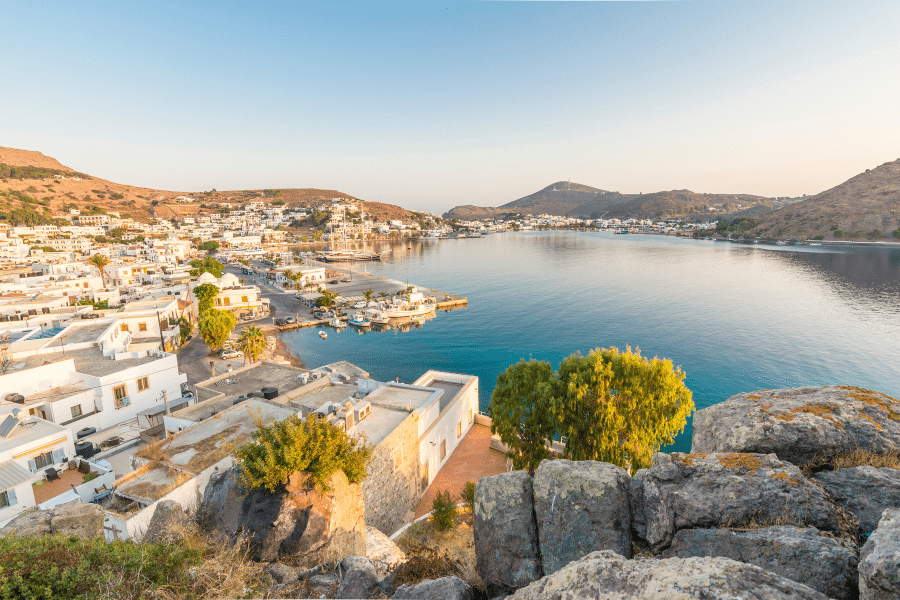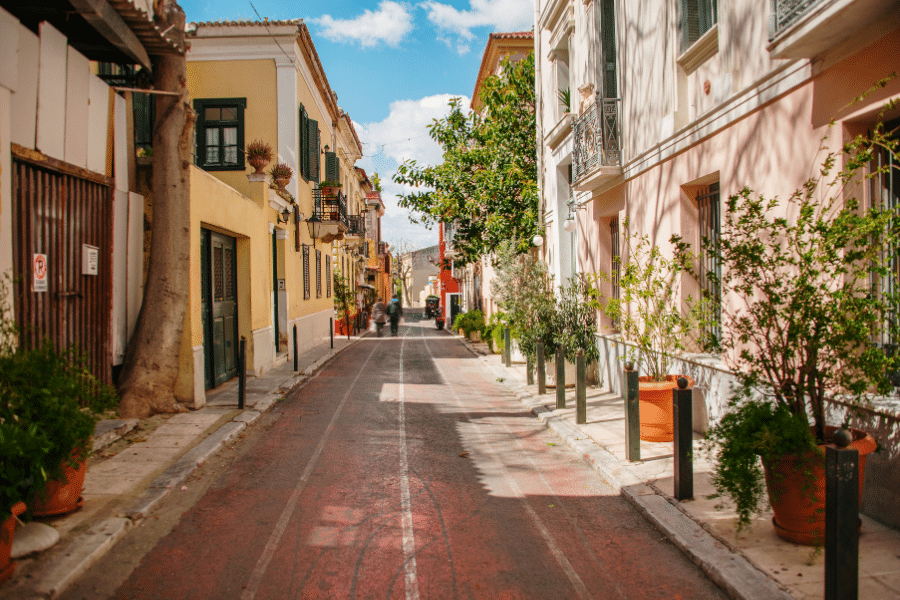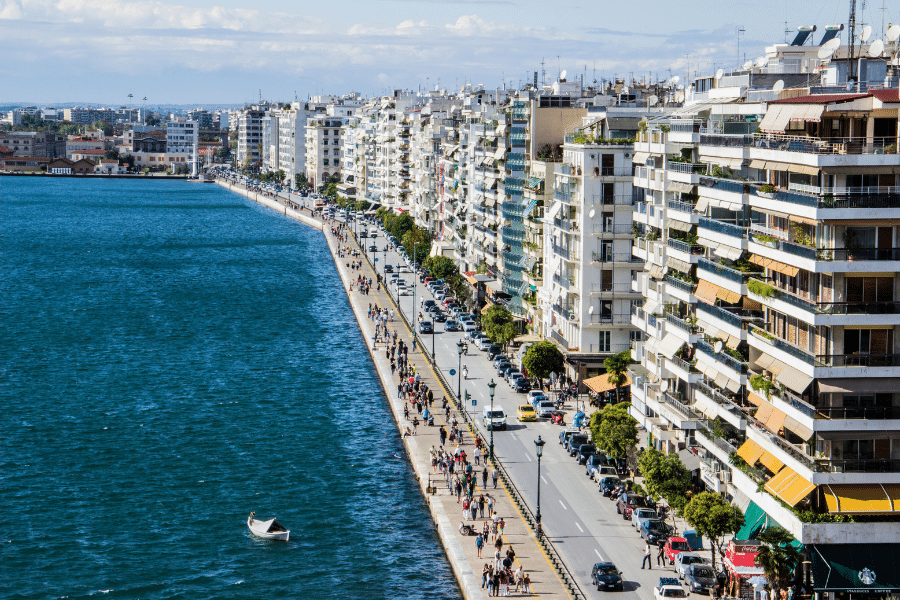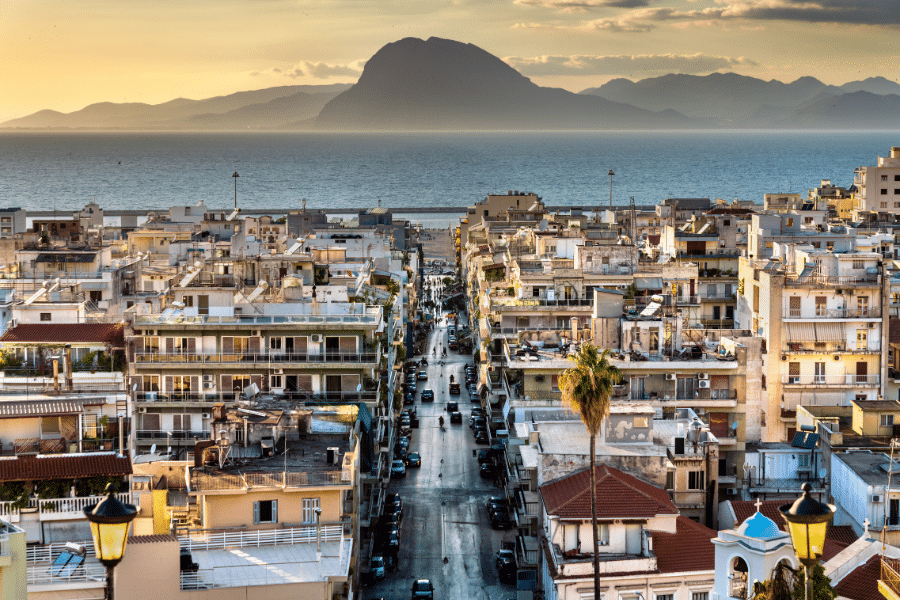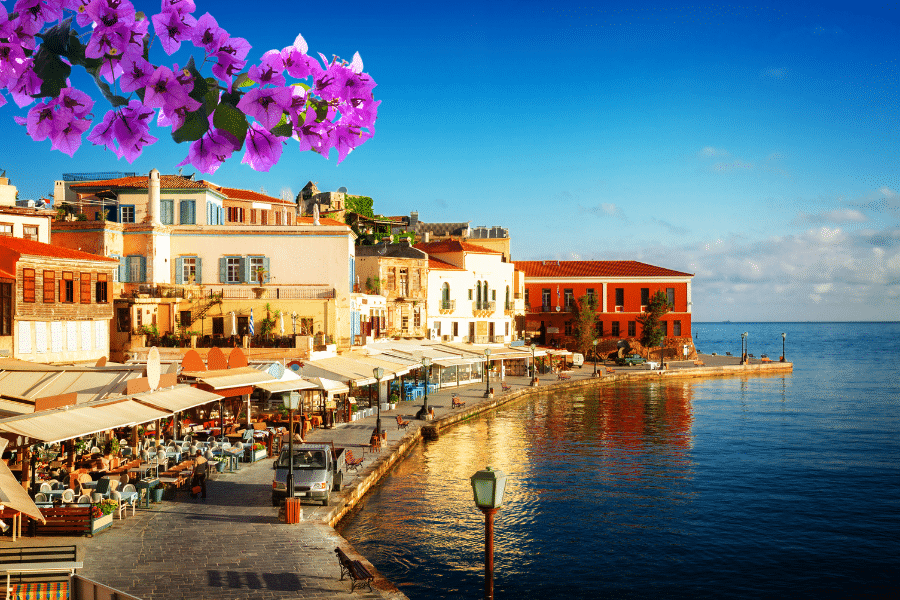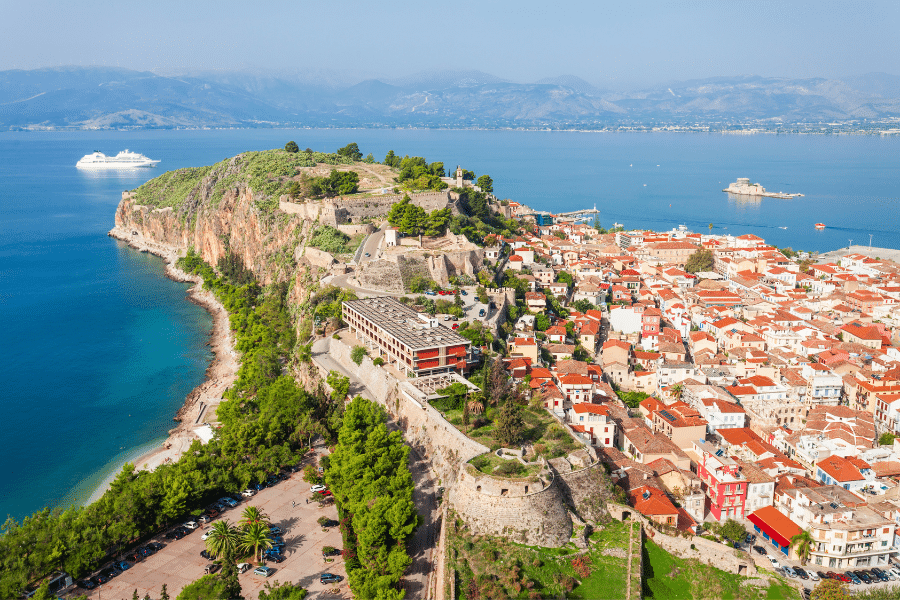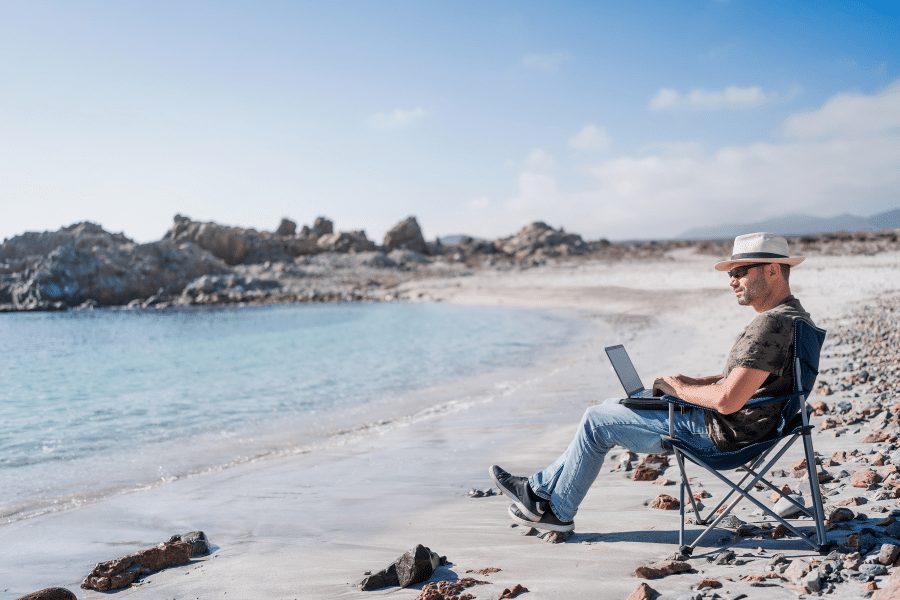Greece offers a great lifestyle much sought after by foreigners. In addition to its lovely climate, beautiful countryside, and stunning beaches, living in Greece also means direct access to amazing archaeological sites, a rich history, great food, and wine. But how do you get started on your journey to living in Greece?
The challenges of being an expat in Greece begin when you make the decision to relocate there. Greece attracts all types of expats, including young professionals, digital nomads, and those seeking a relaxing retirement.
Although the idea of preparing for such a major move may seem daunting, with careful planning, it can go smoothly. You will receive help from the Greek people along the way, which confirms that choosing Greece as your home was a good decision.
Here are the important points to consider as you plan your new life in Greece:
How to get a Greece visa
Anyone from a non-EU country, such as the United States or the United Kingdom, must have a visa if they plan to stay in Greece for more than 90 days. You will need a Type D Visa, which must be applied for before leaving your home country.
Applications should be made at your nearest Greek embassy or consulate. Visas are issued for various categories, including visitors, property owners, students, and digital nomads.
Where to live in Greece?
Greece is a large country that offers a plethora of choices. You can enjoy the excitement of bustling city life, the slower pace of a small rural community, or the unique island living.
Many Americans choose to live on the fringes of a city, with Athens being a favorite. However, an increasing number are moving to the beautiful Greek islands, with Santorini being a popular choice.
Before moving to Greece permanently, it is recommended to take a six-month rental and spend some time in the country in the offseason, to ensure you have made the right choice. This is especially important if island life appeals to you, as many islands are only lively during the tourist season (May to October), while during the rest of the year, many places are closed, and the islanders spend their time on the mainland.
Here are some great places to consider for living in Greece:
1. Athens
This unique city with amazing sights is the top choice for foreigners moving to Greece, including Americans, Canadians, British, Australians and more. It offers plenty of must-visit archaeological sites, including the Acropolis and Parthenon.
The city has museums, cultural tours, markets, good shopping, and reasonable prices. Athens enjoys a typical Mediterranean climate with mild winters and hot, sunny summers.
The Greek capital has a great public transport network, making it easy to live a little further out where rental prices are lower.
2. Thessaloniki
Greece’s second city is architecturally attractive, with a rich history, a cosmopolitan vibe, and a wide coastal promenade, perfect for evening strolls. The pace of life is more relaxed than in Athens, and the city is known for its diverse culture and excellent cuisine. Thessaloniki enjoys a mild climate, but it often gets snow in the winter months.
3. Patras
Located in the northwestern Peloponnese, the port city of Patras offers a vibrant city center with museums, galleries, shops, and a lively nightlife. It has numerous work and leisure opportunities, as it lies close to the sea and mountains, with two large parks on its outskirts.
4. Santorini
Without a doubt, Santorini is one of the most stunning Greek Islands and is proving to be a popular choice with expats. Much of the island does get really busy in the summer months, but in the autumn and winter, island life is much calmer and peaceful, but this is certainly not a lifestyle that will suit all.
Prices for many consumer items are high, making it the most expensive of the Greek Islands. It is still possible to enjoy a really good, cheap meal in a taverna well away from the tourists.
During the summer, it is best to head to the smaller villages inland to avoid the crowds. Internet speed is surprisingly good, unlike the island’s plumbing, which can be problematic.
5. Crete – Chania
Situated on the northwest coast of the large island of Crete, Chania is a great choice. This is an attractive small city with an old Venetian harbor, beautiful beaches, and a sizeable expat community.
Accommodation prices are low, and Chania has high internet speed for remote workers. Chania has one co-working space in the center, but its many cafés offer free Wi-Fi. The Apokoronas District, just east of the city, is particularly popular with expats.
Check out the complete list of best places to live in Greece for English speakers.
The cost of living in Greece
The great news is that Greece is one of the cheapest countries to live in Europe. Prices are between 20% and 50% lower than they are in the United States. To keep your food bills down, eat like the Greeks. Only eat local, seasonal produce, which is far cheaper than buying imports.
Reduce the number of times you eat meat and fish too and increase your intake of pulses, fruit, and vegetables as these are all cheaper. The average cost of living for a single person is €500 ($550) per month, excluding housing.
If you are planning to buy property, you will be delighted to hear that prices are much lower than the average prices in the United States. In Greece, the average house price is between €1,000 and €3,000 per square meter ($90 to $280 per sqft) depending on location and size.
Utility bills can run high, therefore Greeks are very careful not to leave lights switched on unnecessarily.
Traveling around Greece
If you plan to drive in Greece, you must have an International Driver’s Permit (IDP) and also a state-issued driving license. If you plan to stay longer than six months in Greece and continue driving, you will need to apply for a Greek driving license. You will be able to apply for your Greek driving license through your nearest Ministry of Transport and Communications office, and the cost is currently €48 ($53).
Driving in Greece away from the cities is very different, as the roads are often twisting and turning, with many cliffside scenic routes. Driving standards are not consistent, and the car accident rate is higher than the EU average.
It is best to drive slowly, with great care, and defensively, as you will meet the unexpected, such as a driver trying to overtake on an uphill stretch or narrow cliffside roads with no side rails.
If you do not have a car, you will find traveling around Greece remarkably easy as there is a good bus and train network, and numerous boat sailings and ferries that link the islands.
In Athens, the tram and Metro service is particularly good. If you need to fly to the United States to see family, there are regular flights, and they take 15-17 hours. There are flights from Athens to New York, Chicago, Newark, and Philadelphia, and there is a regular flight to Boston from Thessaloniki.
Is Greece a safe country?
Greece is a very safe country, with a low crime rate. In some rural communities, no one bothers to lock their door! The common crimes are opportunist thefts and pickpocketing – mainly in tourist areas and public transport.
It is important to ensure that your personal possessions cannot be taken. Cases of assault and sexual assault are very rare.
Healthcare in Greece
Greece has a good healthcare system, and in 2000, the World Health Organization ranked it 14th out of 191 countries. The Greek Healthcare System (ESY) provides free healthcare to all residents in Greece – including non-EU citizens – and most doctors speak good English.
If you have a chronic medical condition, it is recommended that you have a private health insurance policy too. The cost of healthcare in Greece is one of the lowest, and many foreign nationals living in Greece do take private health insurance so that they have a shorter waiting time for treatment.
Jobs in Greece
After the financial crisis, the Greek economy is recovering, and there are now some opportunities for workers from non-EU countries. The tourism sector has many seasonal work opportunities for English speakers in Greece. It is important to ensure that the job is fully legitimate and that you will be paying tax and health & social insurance.
There are a number of customer service roles available in a variety of industries. Strong verbal and written skills are essential, and knowledge of other languages is helpful if the job is in tourism.
There are openings in IT, telecommunications, and software development. Greece has a fast-developing tech industry, so professionals with experience in tech support, programming, data analysis, and cybersecurity are in demand.
For those willing to learn Greek, there are also job openings in nursing and medical care in hospitals, clinics, or private practices.
Recently, Greece introduced the Nomad Passport, which is available to those who want to live in Greece as self-employed or work remotely for foreign companies.
Learning Greek
A high percentage of Greeks living in towns and cities speak really good English, especially if they are working within the tourism industry. This definitely makes life easier if you are an expat and do not speak Greek well.
However, if you choose to live in a more rural setting, you will find fewer residents – including the older generation – who speak English. Many doctors do speak English, but government officials do not always, so it is highly recommended that you learn to speak at least some basic Greek.
There are several ways to learn Greek. The first is in a class with other expats. The second way is by using an audio CD/reading learning system. The third method is by taking a series of online Greek language lessons.
Practice makes perfect! To learn good Greek will take more than 1,000 hours of tuition and homework. Once you have decided to make the move to Greece, it is probably a good idea to kick off your Greek lessons right away.
The pros and cons of living in Greece
Before you make ‘the big decision,’ it is important to understand the main good and bad points about life as a foreigner living in Greece.
Pros
- Greece enjoys excellent weather – at least 320 days of sun.
- The Greeks are warm and welcoming.
- Greece is a safe country with no serious crimes.
- English is widely spoken by everyone – except older people living in the villages.
- Lower cost of living and the increasing strength of the dollar.
- Lower cost of housing to rent and buy.
- Amazing archaeological sites and historical monuments to explore.
- Great food is one of the world’s healthiest diets.
Cons
- Greek bureaucracy is lengthy and time-consuming.
- Some cities and islands are expensive – both for rental properties and the cost of living.
- The level of healthcare can vary, especially if you live on one of the smaller islands.
- It can still be hard to get a job if you are from a non-EU country. Nepotism rules, and it is great if you know someone to help you.
- Greek is one of the most difficult languages in the world to learn for English speakers, especially because the alphabet is completely different, as it uses Phoenician letters.
Balancing the healthy and more relaxing lifestyle that can be enjoyed in Greece against the negatives, all the pros definitely tip the scales.
Time spent in planning and research will definitely pay dividends and help make your move to Greece much easier. There are plenty of resources available online to help you make all the right decisions.
The worst that can happen is that you choose a location that is not quite for you. If you rent short-term, you can treat the experience as the first chapter in your life in Greece.
Good luck – καλή τύχη (pronounced kali teahee)!


